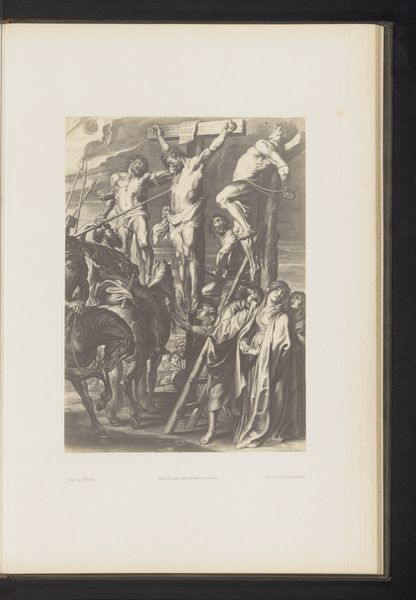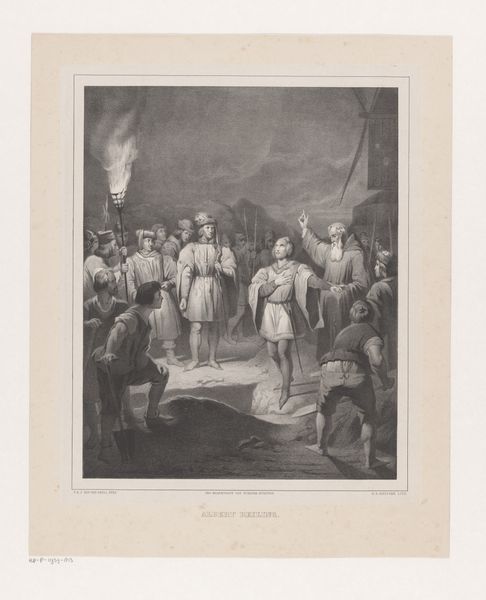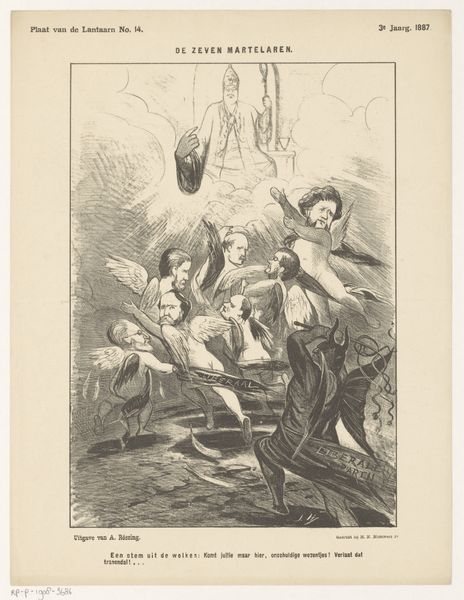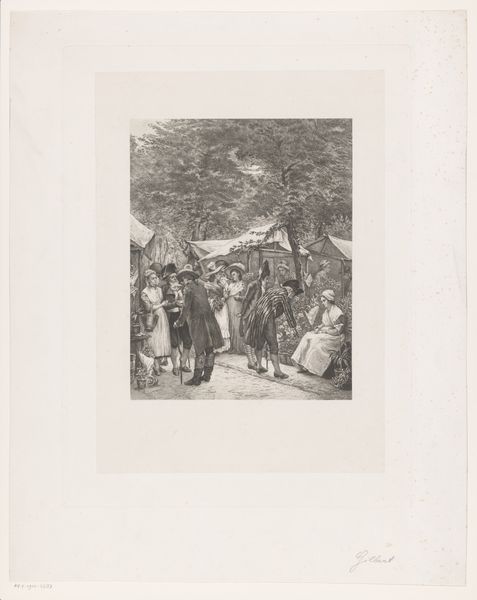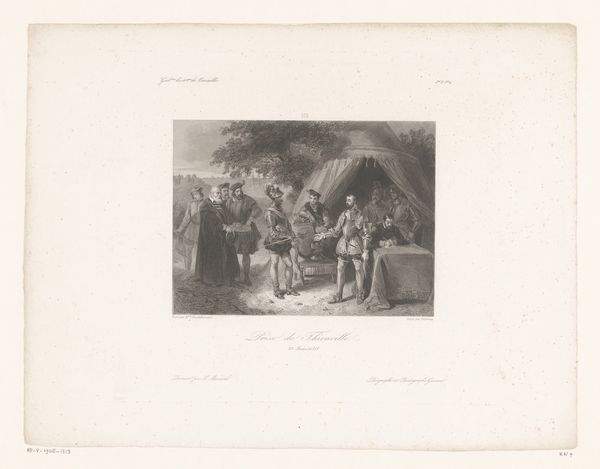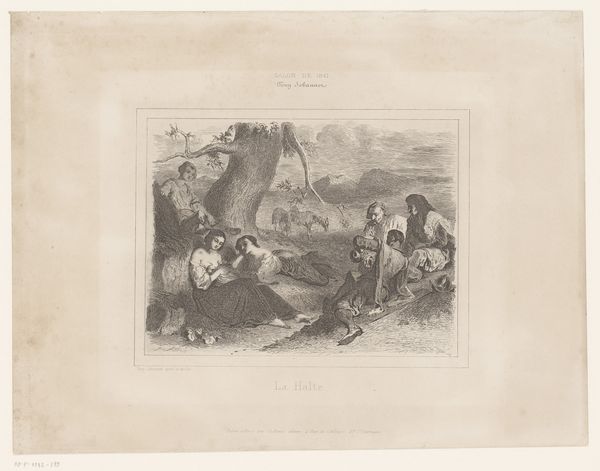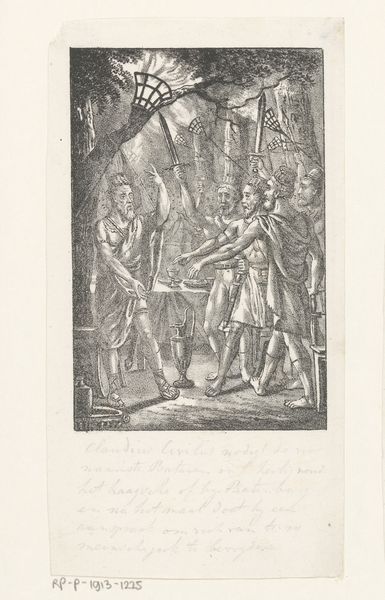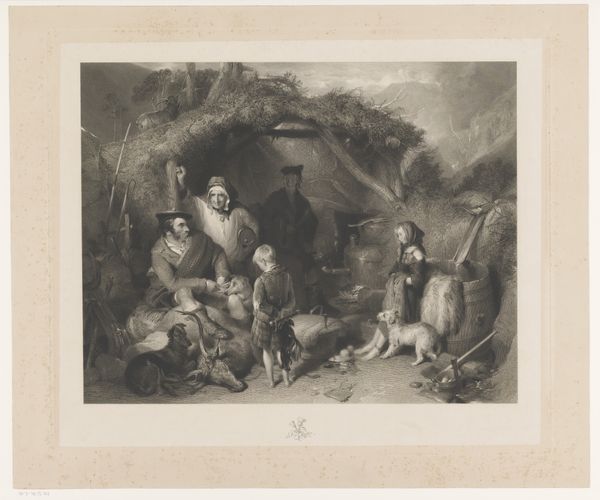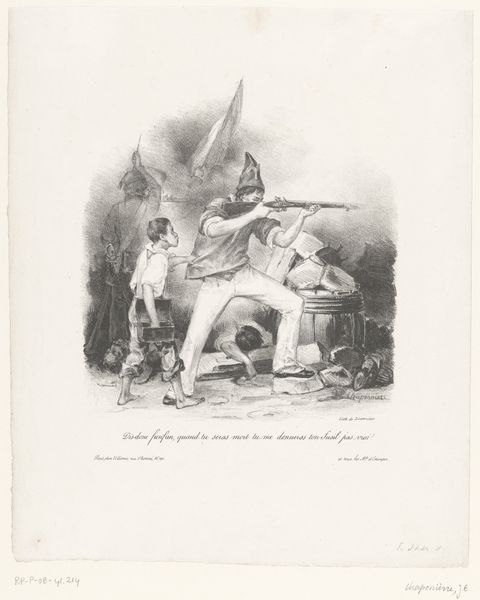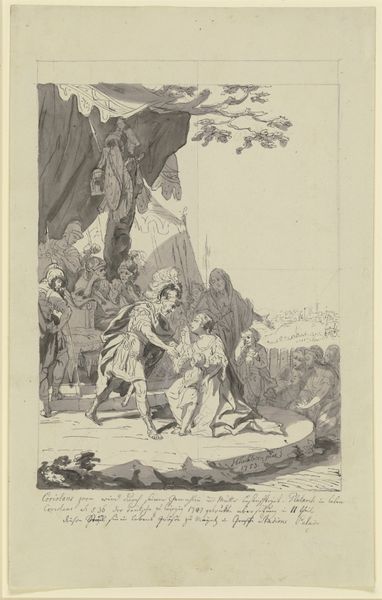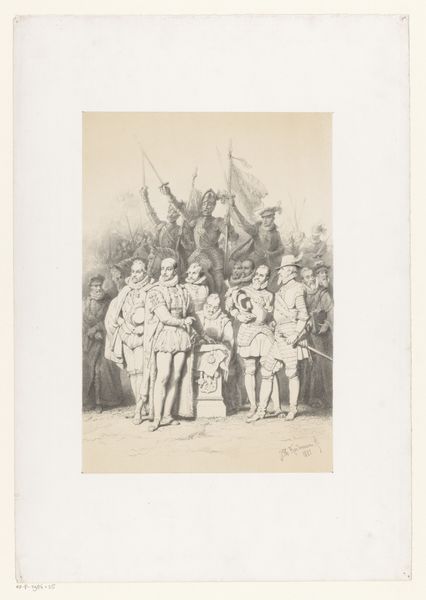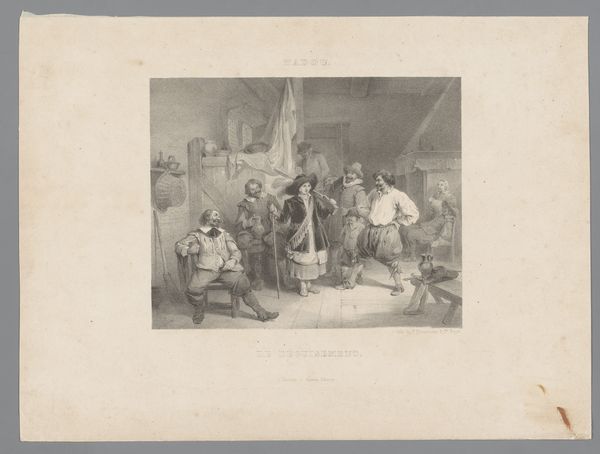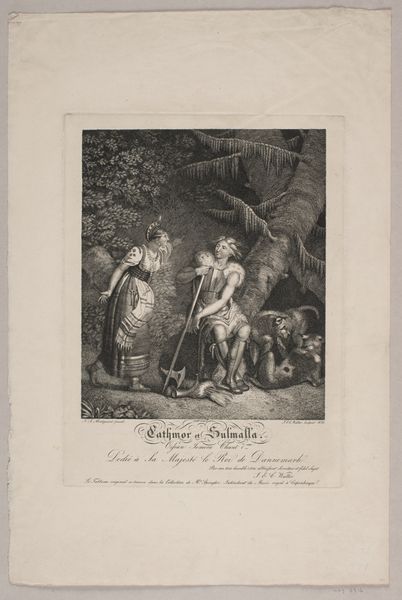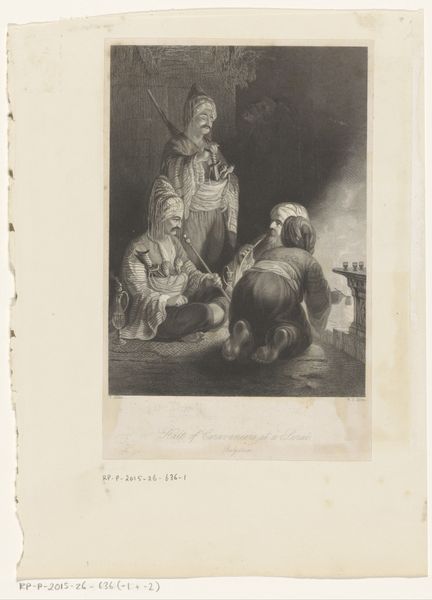
print, engraving
#
narrative-art
# print
#
figuration
#
romanticism
#
history-painting
#
engraving
#
monochrome
Dimensions: height 543 mm, width 430 mm
Copyright: Rijks Museum: Open Domain
Editor: So, here we have Michel Mourot’s engraving, "Julius Civilis Zweert tegen de Romeinen," made between 1840 and 1843. It depicts a group of figures in a dramatic scene, almost theatrical. It's incredibly detailed for a print. What catches your eye when you look at this? Curator: It’s fascinating to consider this engraving as a material object, and think about the labor involved in its production. Engraving is an intensive process, and the choice to create this historical scene in a medium so tied to craft raises some interesting questions. This work challenges conventional boundaries between 'high art' and mass production, as prints allowed for wider distribution of imagery. Editor: That’s interesting. So the act of making it an engraving changes the way we see it as history? Curator: Absolutely. Consider the context. The 19th century saw a rise in nationalistic sentiment. How does making a print, inherently reproducible, serve a purpose related to nationalist ideals, to make it available and democratize its message? Was the act of disseminating these images a vital part of shaping collective identity? Also, it looks like the composition itself, if you compare with similar paintings of the era, is quite dramatic, quite performative. What message did it convey? Editor: I hadn’t considered the link to mass production and its effect. It seems so much of the meaning relies on that act of production and its wider context. It goes beyond the simple representation of the subject. Curator: Exactly. This is about more than just aesthetic appreciation or historical depiction. It forces us to think about the means by which images are created, distributed, and ultimately, consumed. We can therefore trace a line of consumption of nationalist sentiment, the artistic creation playing into national feeling by the Dutch citizens. Editor: I’ll never look at an engraving the same way again! Seeing it connected to nationalism, in the context of materiality, is incredibly powerful. Thank you.
Comments
No comments
Be the first to comment and join the conversation on the ultimate creative platform.
